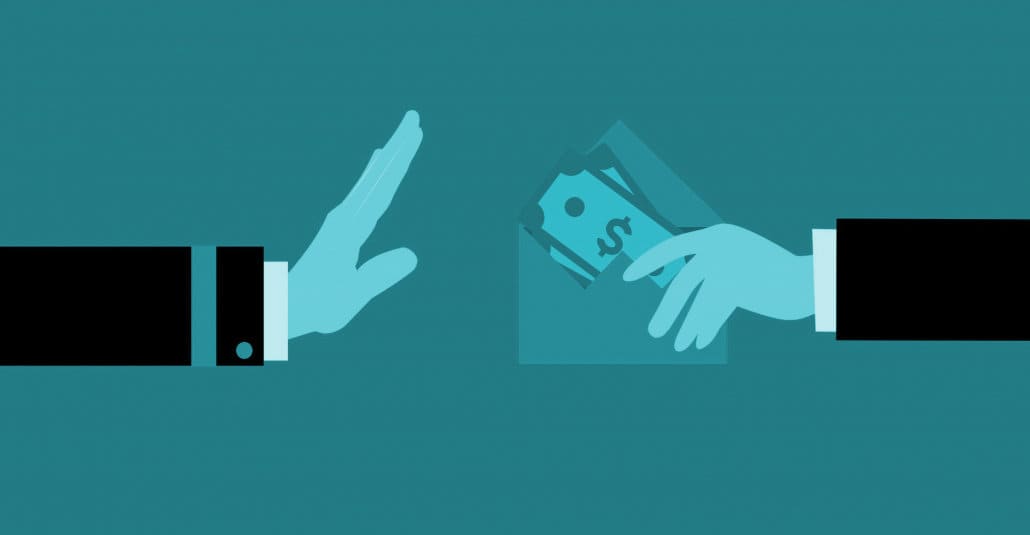By Susan Russell
First published on Africa In Fact
The first issue of Africa in Fact published last year, in January, dealt in depth with the scourge of Transnational Organised Crime (TOC) in all its toxic forms in Africa, a global phenomenon that poses a direct threat to good governance in every corner of our continent. In this issue, we turn our attention to TOC’s evil twin, corruption, a corrosive force that left unchallenged eats into both heart and soul of the democratic process.
Definitions of corruption vary but broadly speaking it describes the abuse of power – and resources – by public servants and elected officials for private gain. Equally corrupt, though, is the company or CEO complicit in illicit financial flows (IFFs), or for whom paying bribes to the right officials to secure favourable mining concessions or lucrative government contracts is just part of the cost of doing business in Africa.
South African CSO Corruption Watch sums up the status quo well in noting that “Corruption affects us all. It threatens sustainable economic development, ethical values and justice; it destabilises our society and endangers the rule of law. It undermines the institutions and values of our democracy. But because public policies and public resources are largely beneficial to poor people, it is they who suffer the harmful effects of corruption most grievously.”
Two recent and important measurements of both corruption and TOC are referred to repeatedly across this issue of Africa in Fact. The first is Transparency International’s 2023 Corruption Perceptions Index (CPI) released early this year, while the second is the Global Initiative Against Transnational Organised Crime’s 2023 Global Organized Crime Index (GOCI).
The CPI ranks 180 countries and territories around the globe by their perceived levels of public sector corruption, scoring on a scale of 0 (highly corrupt) to 100 (very clean).
Despite improvement in some countries, sub-Saharan Africa maintains the lowest average at 33 with both democracy and the rule of law under pressure across the continent. In fact, 90% of African countries scored an average of below 50.
Lacking systems to fight organised crime
While these statistics are disappointing they should not come as a surprise when read in conjunction with the Global Organized Crime Index, which found that 48 African countries lacked the political and legal systems to effectively combat organised crime – noting that corrupt public officials, or “state-embedded actors”, were a weak link in Africa’s fight to combat TOC.
The GOCI research found that state-embedded actors “continued to be the most prevalent criminal actors in Africa”, with their influence growing steadily since 2021, “reflecting their role in facilitating and/or enabling illicit activities from within the state’s apparatus”. This statistic illustrates the enabling relationship and co-dependence between corruption and TOC and indicates that African governments are not doing nearly enough to act against the criminals within their own ranks.
“Corrupt political elites collude with criminal groups and use their captured state agencies to enable and fuel criminality across the continent,” the GOCI found. “For example, the cocaine markets of East and southern Africa are driven by the collusion of state agencies, corruption and law enforcement incapacity or indifference.”
So what to do? As the articles in this issue make clear, combating the evil twins will require effective collaboration between government leaders and civil society. This must start with a genuine commitment from African leaders to uphold the rule of law, promote transparency, and strengthen democratic institutions. This means enacting and enforcing anti-corruption laws, ensuring judicial independence, and fostering accountability among public officials.
Greater intra-continental collaboration is essential to tackle transnational crime networks exploiting weak governance structures. Regional initiatives for intelligence-sharing, law enforcement cooperation, and capacity-building will greatly enhance anti-corruption efforts.
Finally, fostering a culture of transparency and citizen participation is vital. Civil society organisations, media, and watchdog groups play a crucial role in exposing corruption and holding leaders to account, meaning governments must protect these to bolster democratic values and prevent the stifling of dissent.

